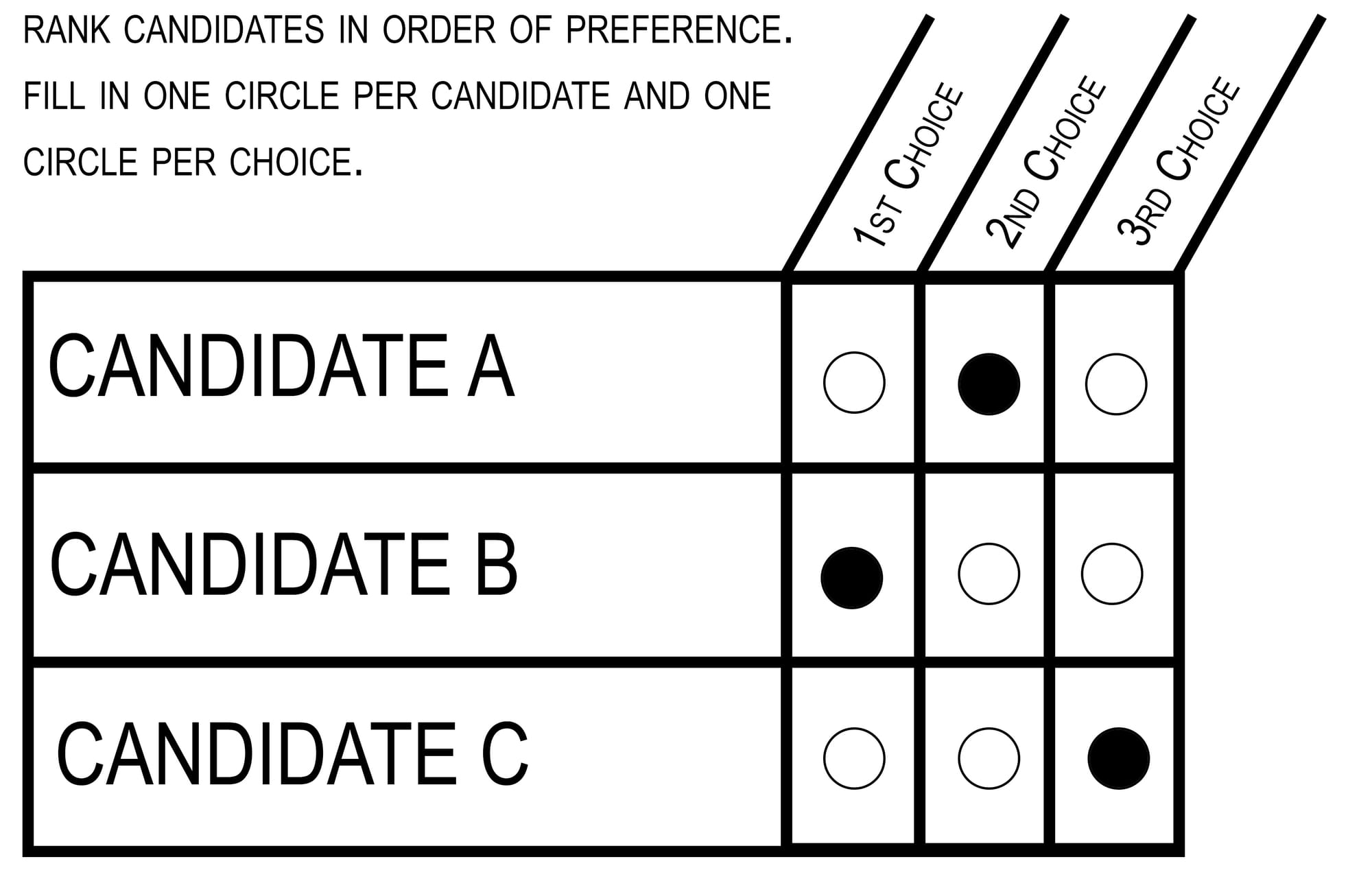How Does Ranked Choice Voting Work?

"Ranked choice voting" is gaining momentum in cities and states across the country. The attention it has gotten in places like Maine -- which will be the first state to use it for statewide elections -- has raised its profile as a popular alternative voting method than what is currently used in most jurisdictions in the US.
This attention also has many unfamiliar with the election reform asking: How does ranked choice voting work?
How RCV Works
https://www.youtube.com/watch?v=DQYRZsbxGgE
Video Credit: The Chamberlain Project Foundation, "More Voice"
"RCV is straightforward for voters: rank candidates in order of choice. Voters can rank as many candidates as they want, without fear that ranking others will hurt the chances of their favorite candidate," says FairVote, a leading advocate for alternative voting methods like ranked choice voting.
"Every vote counts for its first choice. If a candidate has more than half of the vote based on first-choices, that candidate wins. If no candidate has more than half of those votes, then the candidate with the fewest first choices is eliminated. The voters who selected the defeated candidate as a first choice will then have their votes added to the totals of their next choice. This process continues until a candidate has more than half of the active votes or only two candidates remain."
It's easy. Just rank your choices. Then a system of automatic runoffs (if needed) takes care of the rest. Proponents say it cuts down on vote splitting concerns, and ensures the winner of an election has majority support. It also eliminates the need for additional runoff elections, saving taxpayers additional time and money.

In 2018, for the first time in history, ranked choice voting will be used in statewide and congressional races in Maine, where Gov. Paul LePage won election in 2010 with 37.6 percent of the vote.
This means nearly two-thirds of voters voted for someone else in that election. LePage also won re-election in 2014 with less-than-majority support.
Most jurisdictions use the same choose-one voting method Maine used for these elections and others prior to 2018, which can often result in the winner being picked by a minority of voters.
Yet the popularity of ranked choice voting is spreading.
Where RCV Is Used
Ranked choice voting is used in mostly local municipalities like San Francisco, Oakland, Minneapolis, Cambridge, and 8 more, according to FairVote.
RCV is also used for overseas and military voting in states like Alabama, Arkansas, Illinois, Louisiana, Mississippi, and South Carolina. And it is used by various political parties, companies, and organizations for internal elections.
In 2016, Maine became the first state in the US to approve ranked choice voting's use in statewide and congressional races. After several battles in the legislature and in court, ranked choice voting will be used in the June 12 primary elections.
Get More Information
You can get more information about ranked choice voting, its uses, and why proponents say it is necessary reform by visiting FairVote's in-depth breakdown and analysis here.



